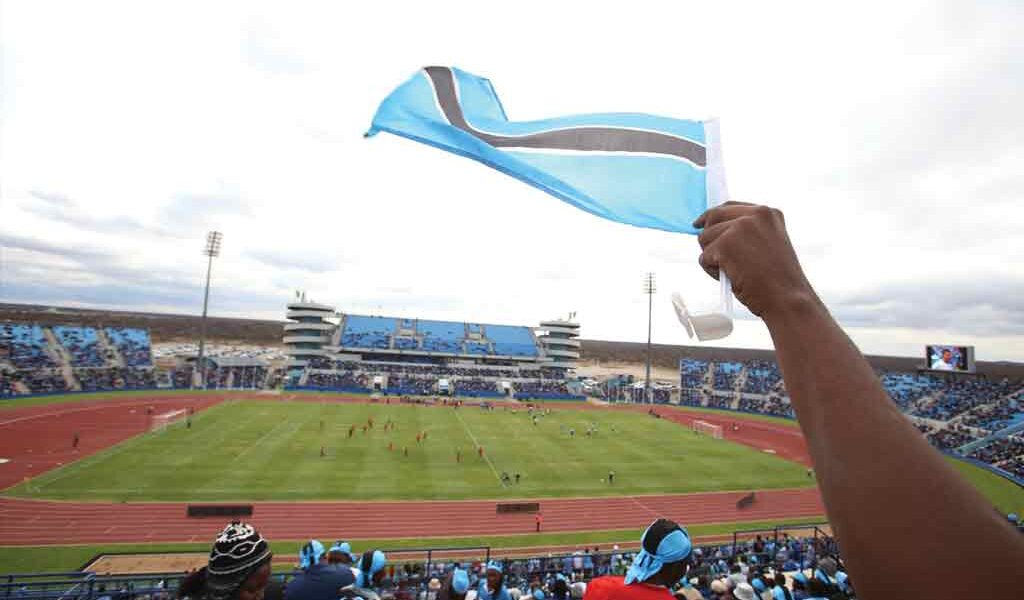Donald Molosi
At midnight on September 30, 1966 the Union Jack was lowered, and Botswana’s new flag was hoisted at full mast at the National Stadium in Gaborone. In that moment Bechuanaland Protectorate was suddenly a thing of the past, and the Republic of Botswana was immediately a reality, at least symbolically. But how much do we Batswana know about that blue, black and white flag that was hoisted that night?
Eight years ago when I was researching for Broadway’s first-ever theatre production about Botswana, I instinctively knew that I wanted to call it Blue, Black and White after our flag. So, I decided that I needed to have a deeper historical understanding of that symbolism before I officially used it as a name.
Vexillology, the study of flags, became my pastime and I was immediately struck by the absence of Pan-African colors (red, yellow and green) in our flag. The incorporation of these colors into national flags was, after all, the trend among newly-independent African countries at the time. I thought to myself that if our Founding Fathers (Sir Seretse Khama, Sir Ketumile Masire et al) forfeited this trend then whatever they chose to put in our flag must be in service of a larger cause than Pan-Africanism. Or in reaction to the trend. But what is bigger than Pan-Africanism?
Soon I discovered that this forfeiting of an honourable trend was for two reasons: firstly our leaders wanted the Botswana flag to contrast the flag of South Africa’s apartheid regime to show that the new Republic of Botswana would be formed on non-racialism among other pillars. Secondly, Sir Seretse Khama did not want to have the ruling party’s colours in the national flag, despite many requests by the citizenry to have the Botswana Democratic Party colours as the national flag. He wanted the national flag to carry more neutral colours: blue, black and white.
In effect, our leaders in 1966 opted to symbolize something greater than partisan politics and greater than Pan-Africanism, and that is (Pan-) Humanism. Because of the black and white stripes in our flag, Botswana was – at independence – the only country in the world whose national flag symbolized racial harmony.
This sentiment of racial harmony is further echoed by the fact that the flag’s black and white stripes are the colours of the national animal, the zebra, an animal that was specifically chosen to be the national animal because it is no ethnic group’s totem in Botswana and to quote Sir Seretse Khama, “therefore no preference is given to any group or section of the population.”
Everyone knows that the sky blue in our flag symbolizes our clear Botswana skies and more significantly water and rain which are prized commodities in our desert country. What I had not paid attention to until I wrote and performed Blue, Black and White though is that the blue alludes to the coat of arms’ motto of Pula. The sky blue, then, is something of a national prayer for blessings in the same way that when we say to someone, “A pula e go nele!” and we are essentially wishing blessings upon them.
With so much history and meaning coded in the flag, is it perhaps flag desecration that there are so many flags in the country that use dark blue instead of the official sky blue? Is it perhaps diminutive of the flag’s meaning that the official width ratio of its color strips [9(blue):1(white):4(black):1(white):9(blue)] is violated so often in our images of the flag? But how many of us know that there is an official ratio of the dimensions of the color stripes in the flag? How many of us know that it is legal for any citizen to put a vehicle flag on their car’s bonnet? How many of us know that all citizens have the right to be buried in a flag-draped casket? It would seem that the first step to regulating the use and adaptation of the national flag is to first inform the nation about the details of the flag.
I end with a question I personally have – why does our flag not have a name, the way the US calls its flag the Star Spangled Banner? Or even a nickname, the way that the Hong Kong flag is nicknamed the Rice-Character Flag?
Donald Molosi is an award-winning Broadway Actor and Writer.
Twitter/Instagram: @ActorDonald
Email: blueblackbotswana@gmail.com

